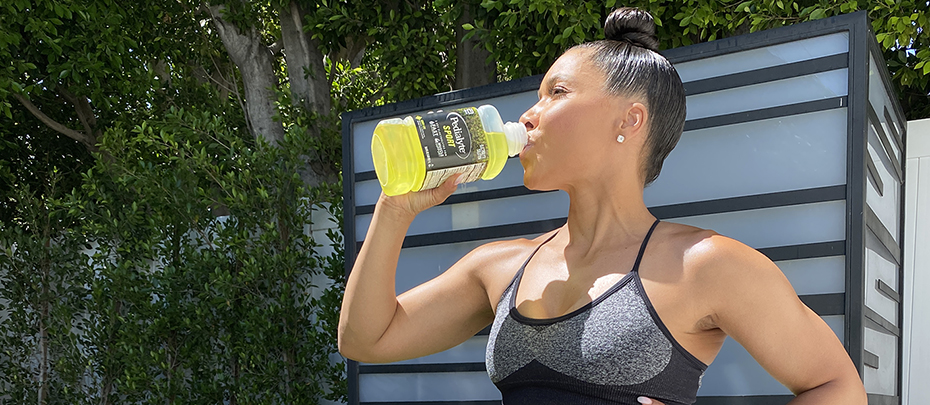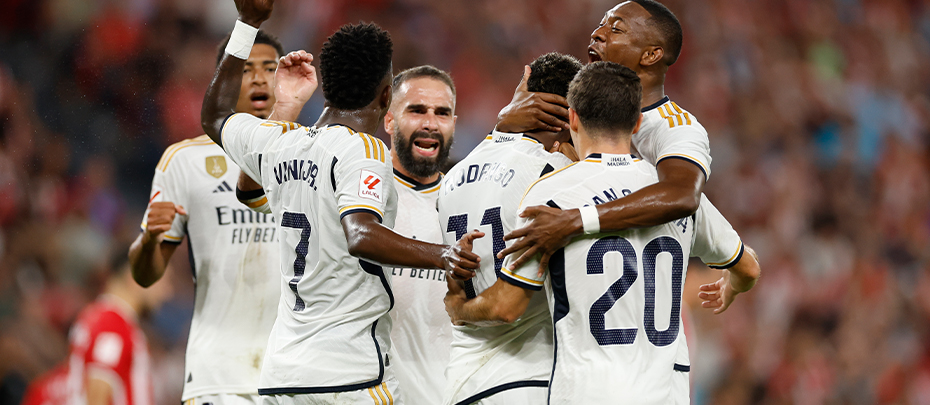Why is calorie intake important?
Jeannette: Whether you’re looking to burn fat or strengthen your muscles, you must pay attention to your meal plan just as much as your workout plan. In general, most people don’t understand how many calories they eat in a day or how many calories they should be eating. If you are trying to burn body fat or slim down, you need to have a calorie negative at the end of the day. The first step is to understand what you are eating and how many calories are in your chosen foods. There are 3,500 calories in one pound of fat. If you have a calorie negative of -500 a day, you can achieve a calorie negative of -3500 in a week (7 days) to help you burn off 1 pound of fat. It takes time to learn about the food you put in your body, but it’s necessary, and that knowledge you gain will remain with you for a lifetime. Also, take time to meal prep. Spending an hour at the beginning of your week planning meals will save time and calories.
Why does hydration matter?
Jeannette: It is crucial to ensure you’re well-hydrated before, during and after your workout. It would be best if you started well-hydrated before you even get moving. Signs like dark urine color will tell you that you need to up your fluid intake before hitting the gym. During a workout, we activate our sweat glands to help cool down the body, which depletes our internal water levels. Dehydration occurs when fluid losses exceed fluid consumed through both foods and drinks. It can impact everything from athletic performance and muscle recovery to mood, alertness, concentration and short-term memory.
But not all hydration is created equal. A recent survey from Abbott showed that 46% of people who exercise intensely think that soda and energy drinks can help in rehydration after a challenging workout though these drinks may actually contribute to dehydration. Approach hydration with intention; get plenty of water and consider hydrating liquids like Pedialyte.
Do I need electrolytes?
Jeannette: It’s vital for those who regularly exercise to understand how water, electrolytes, and the right amount of carbohydrates impact performance and recovery. Water is a part of every cell in your body, making it essential to everyday health. Many don’t realize that electrolytes also help direct the flow of water throughout the body, helping to support rehydration and muscle repair, and carbohydrates like glucose are needed to pull the electrolytes into the body’s cells during rehydration. Still, too much sugar can worsen dehydration symptoms.
That’s why I partnered with Pedialyte. Pedialyte Sport is a new rehydration solution scientifically formulated to quickly replenish fluids and replace electrolytes lost in sweat for athletes and fitness enthusiasts. Offering three times the electrolytes (sodium, chloride, potassium, magnesium, and phosphate) and one-fourth the sugar of the leading sports drink, Pedialyte Sport helps athletes avoid negative symptoms of mild to moderate dehydration like muscle cramping, fatigue, and headache by replacing fluid/water lost in sweat. The powder packs are also convenient for when I’m on the go, so I always keep a few of them in my bag.
Lastly, don’t look at exercise and diet as something to dread. Healthy living and moving your body are a way of life and don’t happen overnight. Most importantly, don’t forget a positive attitude. It will set you up for long-term success. Good luck!




Social Share